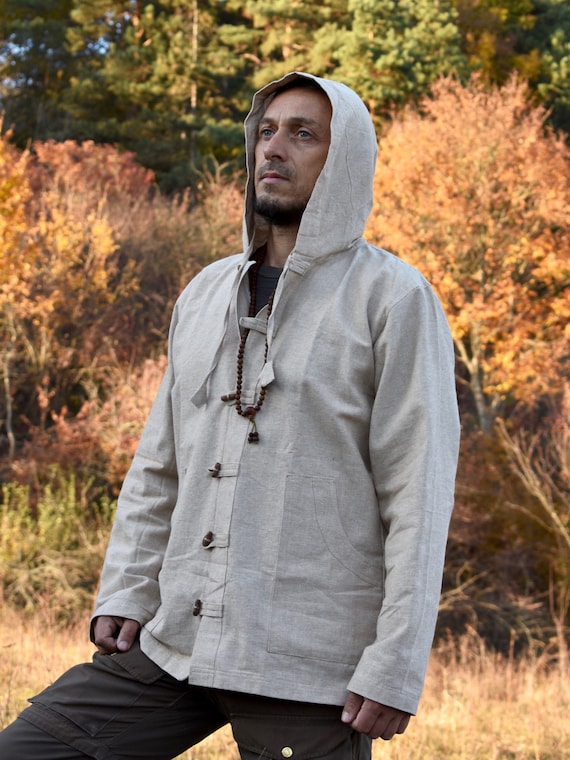Top Tips On Deciding On Bamboo Clothing
Wiki Article
Why Is Hemp More Biodegradable And Durable And Renewable Than Cotton For Example?
The inherent properties of hemp, as well as the way it's grown makes it more biodegradable, durable and sustainable than cotton. Here's why- Biodegradability-
Natural Fiber Natural Fiber Hemp is a natural plant fibre, which is biodegradable. Hemp clothing and textiles decompose naturally over time. They return to the earth, not leaving behind any long-lasting waste. It is a striking contrast to synthetic fibers like polyester that can take a number of years to break down.
The absence of synthetic additives Hemp textiles usually do not contain synthetic additives or chemical treatments that inhibit biodegradability. Contrary to this, some cotton fabrics are treated with synthetic chemicals, such as dyes or finishes which can interfere with biodegradation.
Durability-
Hemp fibers are known for their durability and strength. Hemp clothing and textiles are more durable to wear than cotton, which makes them last longer. The durability of hemp clothing means that it can endure more washings and wearing cycles before it begins to deteriorate.
Hemp fabric is less likely to pill than cotton. This contributes to their durability and their quality.
Regenerative Agriculture-
Soil Health- Hemp cultivating is a regenerative practice when it's done sustainably. Hemp has a deep root system that helps prevent soil erosion and compaction, and it can enhance soil health by aerating soil and encouraging microbial activity. This regenerative component can help the soil be healthier for the future growth of crops.
Low environmental impact - Sustainable hemp cultivation techniques generally use low levels of pesticides and herbicides to reduce environmental harm. Contrary to conventional cotton farming, the chemical use can cause soil degradation and pollution of water.
Water Efficiency-
Hemp usually requires less than cotton to develop. Because of its drought resistance it is able to be grown without much or no irrigation. This makes it a more efficient use of water, particularly in areas that have limited water resources.
Crop Rotation Hemp can be integrated into systems of crop rotation, which can improve overall soil health and lower the risk of soil depletion and disease buildup. In the cotton industry, the practice of rotation is much less common.
The versatility of hemp allows it to be used in many different applications including textiles, clothing papers, building materials and paper. Hemp's versatility permits it to be used in a vast spectrum of industries using the use of sustainable and regenerative methods.
It's important that you know that hemp is an excellent product, however it could be a waste of resources, depending on the farming and processing methods. Pick hemp products made with ethical, sustainable practices in order to maximize the environmental benefits. Organic cotton products are also an effective way to lessen the impact on the environment of cotton products that are conventional. Take a look at the top hemp clothes info for website advice including patagonia work pants hemp, hemp sweatpants, hemp active wear, hemp fleece fabric, hemp shirts wholesale, hemp clothing near me, hemp clothing near me, organic hemp fabric, hemp active wear, hemp shirts mens and more.

What Are The Benefits Of Hemp Clothing? What Are The Functional And Technical Advantages Of Hemp Clothing Versus Traditional Fibers?
Hemp clothing has many technological and functional advantages over traditional fibers, while being environmentally sustainable. Here are a few ways in which hemp clothing stands out as a high-performance and eco-friendly choice- Moisture Wicking and Breathability-
Hemp fibers possess a great wicking capacity and are highly air-tight, which means that hemp clothes are comfortable regardless of the weather. They can help to wick away sweat from your skin, allowing you to stay cool in hot weather.
Temperature Regulation
Hemp clothing has great thermoregulating properties. Hemp clothing helps keep you warm by capturing warmth close to the body and cool you down in hot weather by allowing moisture and heat to be able to escape. The natural regulation of temperature reduces the need to frequently change your clothes.
Longevity and Durability
Hemp fibers are well-known for their strength. Hemp clothing is known to be stronger and more resistant to wear compared to other fibers that are used in traditional fashion, such as cotton. The result is that hemp clothing can last a lot longer. It also means fewer need for frequent replacements.
UV Protection-
Hemp fibers are a natural source of UV protection, shielding the skin from damaging UV radiation. This is particularly beneficial in outdoor activities.
Biodegradability:
Hemp clothing is biodegradable, meaning it breaks down naturally over time when disposed of. This helps to reduce the impact on the environment of textile trash. Synthetic fibers may be left in landfills for extended time.
Low Environmental Impact
Hemp is generally grown using less herbicides, pesticides and synthetic fertilizers than cotton. It requires less of the precious water resources. This means it is a more sustainable choice. Hemp farming organically improves the green features.
Carbon Sequestration
Hemp can be used to remove CO2 from the atmospheric air. The hemp plant acts as a carbon sink, and also reduce greenhouse gas emissions.
Sustainable and crop rotation
Hemp can be included in the rotation of crops, enhancing overall soil health while reducing the risk of soil depletion and the buildup of disease. This sustainable farming method is the result of sustainable farming.
Versatility:
Hemp fibers can be mixed with other substances (such organic cotton or recycled polyester) to create eco-friendly and high performance fabric blends. This versatility lets textiles be innovative and eco-friendly.
Low Toxicity
Hemp fibers are non-toxic by nature and do not require any chemical processing during the manufacturing process, help reduce the impact on the environment.
While hemp offers many eco-friendly and practical advantages, the durability of clothing is dependent on factors like dyeing techniques and transport. It is also affected by ethical labor practices. Customers who wish to be environmentally conscious should select clothing brands that use hemp and other sustainable fibers, and should prioritize transparency and ethical manufacturing practices. See the best go to the website for blog info including hemp fleece fabric, organic hemp clothing, patagonia hemp jacket, hemp shorts, jungmaven sweatshirt, hemp fabric clothing, mens hemp trousers, hemp apparel, hemp textiles, patagonia double knee pants and more.
What Are The Advantages Of Wearing Bamboo Clothes For Comfort And The Environment?
Bamboo clothing provides several benefits in terms of comfort for the wearer as well as the environment in which they live.
Bamboo fabric is renowned for its softness. It is silky and smooth to the touch, which makes it soft on the skin. A lot of people find bamboo clothing extremely soft and comfortable, which makes it a popular option for intimate clothing, loungewear, and activewear.
Breathability Bamboo fibers naturally transpire and absorb moisture. The tiny gaps in the fabric allow air to circulate which keeps you comfortable and cool during hot weather. The moisture-wicking properties of the fabric aid in removing sweat from your skin. This reduces the sensation that your clothes are damp.
Bamboo clothing has great thermoregulatory properties. Bamboo clothing keeps you warm in cooler temperatures by capturing warm air close to your body. It also helps to stay cool during summer heat because it lets excess heat and moisture escape. The ability to adapt to temperature variations makes bamboo clothing ideal for wear all year round.
Hypoallergenic Bamboo is hypoallergenic due to nature and gentle on sensitive skin. Bamboo fabric is more likely than other materials to trigger allergic reactions or irritations, so it's a good choice for those who have allergic skin or sensitive skin.
Bamboo fibers naturally have antimicrobial properties and can inhibit the growth of the bacteria that cause the odor. Bamboo clothing retains its freshness even when you are physically active.
Environment-
Sustainable- The bamboo plant is a sustainable and renewable resource. Bamboo is one the fastest-growing plant in the world. It requires only a small amount of water for cultivation and uses no pesticides. Bamboo can be grown from roots, making it possible to harvest the plant without damaging the plant.
Bamboo is naturally water-efficient. It can thrive on minimal irrigation. The rainwater supply is usually sufficient to allow it to grow.
Biodegradability. Bamboo clothing is biodegradable. They naturally break down with time. This property reduces non-biodegradable waste textiles in landfills.
Carbon Sequestration Bamboo plant can absorb carbon dioxide (CO2) in the course of rapid growth. This means that bamboo cultivation is a carbon sink, helping to slow climate change by reducing greenhouse gas emissions.
Chemical Reduction- The manufacture of bamboo fabrics typically requires the use of fewer chemicals and processing procedures compared to some other textiles, reducing the environmental impact associated with the production of textiles.
Closed-Loop Systems Bamboo fabric production utilizes closed-loop techniques that reuse water and chemical. This reduces waste and pollution.
The environmental impact of bamboo clothing is in relation to the method by which they are made and if the bamboo comes harvested from forests that are sustainable and responsibly managed. Consumers should only buy bamboo clothing made with eco-friendly ethical practices in order to reap maximum environmental benefits. Check out the top https://www.koraoutdoor.com/collections/bamboo for website advice including bamboo shirt, bamboo baby pajamas, bamboo jacket, bamboo under wear, bamboo newborn clothes, carter's bamboo pajamas, bamboo pants womens, ladies bamboo pants, bamboo pants, bamboo cay shirts and more.

